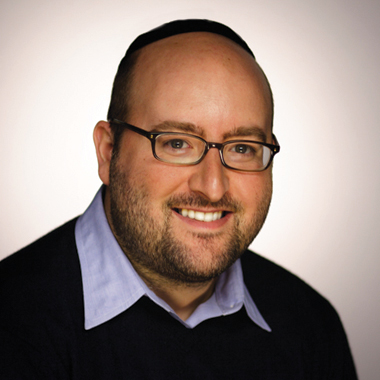In the portion Tetzaveh, the Creator gives commandments to Moses, beginning with the words Ve’ata Tetzaveh, “And you should command,” but does not mention Moses by name, only using the word “you.” This is important, because the kabbalists point out it is the only place in the Torah from the time Moses was born until now where his name is not mentioned.
"When we remove our ego completely, we become completely unified with the Light."
The Baal Haturim gives an explanation as to why this is. At the time of the fall of the golden calf, the Creator wanted to destroy all the Israelites, but Moses told the Creator, “You have to forgive them and remove the judgment; if You do not, then You can erase me from Your book.” And although the Creator accepted Moses’ request and forgave the Israelites, the statement “erase me from Your book,” the Baal Haturim explains, came to fruition for Moses in the portion Tetzaveh, where his name is not mentioned. That is the literal understanding of why the name of Moses is not mentioned in this portion, but of course, we know, there is a deeper understanding of everything.
So, what is the deeper understanding for the lack of Moses’ name in the portion Tetzaveh, and how does it relate to what happened when Moses sacrificed himself completely in order to save all the Israelites? The answer, the kabbalists teach, is that the degree to which a person can actually effect change and draw endless Light and blessings is only the degree to which he or she has completely removed his or her own personal agenda or motivation from the process. And that is what Moses did.
"We can become one with the Creator."
Ultimately, the most elevated soul, a tzadik, or righteous person, is one who does nothing for him or herself; the only motivation behind what he or she does is for the sake of assisting others. When Moses told the Creator that He should “erase me from Your book” unless judgment and negativity is removed from the Israelites, Moses was essentially saying, “I have no purpose in life, if not for the purpose of giving to others.” And in that moment, Moses achieved the level of complete removal of ego and selfish motivation from every action that he ever did for the rest of his life, and became one with the Creator.
Why? Because when we remove our ego completely, we become completely unified with the Light of the Creator, no longer existing as a separate entity from the Light. When we achieve that level, we can bring any blessing, remove any judgment, and bring healing. Therefore, we come to see that the reason Moses is not mentioned by name in this portion is not because it is a punishment; rather, it’s the greatest reward. It is the indication of what Moses achieved: he had come to a state where he no longer existed as a separate and distinct individual. Moses was simply now the Light of the Creator, and because of that, as the kabbalists explain, everything Moses did lasted forever, because he had given up his ego and personal agenda completely.
And that is the energy available to us on Shabbat Tetzaveh; we can ask for the removal of our own personal desires from what we do, so that we may ultimately come to the place of no longer existing separately from the Light. We can become one with the Creator, and just as the Light of the Creator can heal, so can we heal, just as the Light of the Creator can bring blessings, so can we bring blessings. In that state, there’s nothing the Light of the Creator can’t do that we can’t do either, because we’re not separate anymore. It is the ultimate state Moses achieved on this Shabbat, and the amazing gift that we can ask for. And to the degree we desire it, to the degree we ask the Creator to give us the assistance to separate ourselves from all the selfish agendas we have, is to the degree that what we do can truly last forever and be only of the Light.
